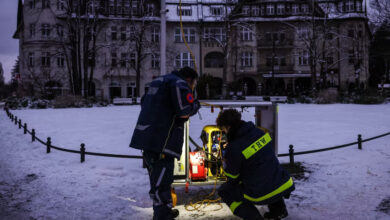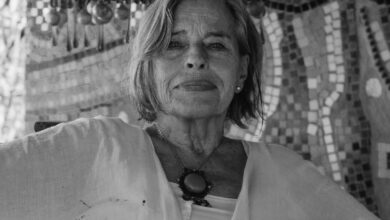
Syrian refugees rejoiced on Sunday at the news that Angela Merkel had secured a fourth term as German chancellor, but said they were alarmed by the rise of the far-right AfD party, which they feared could push her to tighten asylum rules.
“We prayed that Merkel would win,” said Fatima al-Haidar, a mother of two from Damascus. “Allah answered our prayers. To us she represents wisdom and humanity.”
While Merkel’s conservative bloc won most seats in parliament, the result was its worst since 1949 as voters turned en masse to smaller parties.
The conservatives bled support to the anti-immigrant Alternative for Germany (AfD), which entered parliament for the first time as the third-biggest party, cashing in on anger at Merkel’s decision to welcome more than 1.3 million refugees.
“Merkel put her career on the line to help us,” said Haidar’s 55-year-old husband Ayman. “We want to learn German and contribute to the success of this country through work, simply to prove that she was right and her opponents were wrong.”
Fatima and Ayman found out the election results from their 14-year-old son Zayd, who tuned in to the public broadcaster ZDF on his mobile phone to break the news to his parents and their friends as exit polls came in.
“When Zayd told us Merkel had won we did a zalghouta,” said Roula Mohammad, referring to a tongue trill that Arab women perform during weddings. “We need a wise woman like her in Syria to end the war.”
The Syrian refugees were having dinner at Al Dimashqi, a popular Arab restaurant on Sonnenallee, a long boulevard in Berlin’s poor neighborhood of Neukoelln that refugees call “Arab Street” for its abundance of Arabic shop signs.
The AfD’s campaign appealed unashamedly to voters who feel that the influx of mainly Muslim migrants will undermine German culture, asserting that Islamic customs have no place in Germany.
Merkel’s conservatives and their Social Democrat coalition partners in the outgoing government quietly introduced stricter asylum rules last year after losing support to the AfD in regional elections.
Refugees fear that the AfD’s stunning showing of more than 13 percent of the vote on Sunday could spell even tougher immigration rules under the next Merkel-led government.
“She is less popular because of us,” said Nabil Zainaldin, 32, from Aleppo. “We totally understand that Germans are worried. All we can do to reassure them is to be law-abiding citizens. But we are also worried: what will the asylum policy of the new government be?”




